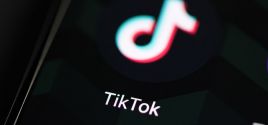Police raid at JMU is an affront to the First AmendmentWashington PostApr. 22, 2010 |
Popular 
Mike Johnson Pushes Debunked Lie That Israeli Babies Were 'Cooked in Ovens' On October 7

'It Has to Be Stopped': Netanyahu Demands Pro-Palestine Protests at U.S. Colleges Be Shut Down

'These Protesters Belong in Jail': Gov. Abbott Cheers Arrest of Pro-Palestine Protesters at UT Austin

Claim Jewish Student Was 'Stabbed In The Eye' by Pro-Palestine Protester Draws Mockery After Video Released

'We Aren't Going Anywhere': TikTok CEO Vows to Fight TikTok Ban in Court
 POLICE, PROSECUTORS and citizens in the vicinity of Virginia's James Madison University had every reason to be angry about, and seek justice for, the violence that turned an annual spring bacchanalia this month into a blood-stained melee resulting in dozens of arrests and several hospitalizations. Drunken, loutish students and visitors set dumpsters afire, vandalized property and showered cops, and each other, with beer bottles and rocks in the Shenandoah Valley college town of Harrisonburg. But none of that justifies the actions of the local prosecutor and police who, six days after the April 10 riot, showed up brandishing a search warrant at the JMU student newspaper, the Breeze. The prosecutor, Rockingham County Commonwealth's Attorney Marsha Garst, threatened to seize the Breeze's computers, cameras, even cellphones, thereby halting publication, unless the paper turned over hundreds of unpublished photos of the riot. Faced with just the sort of government menace to the press that the framers of the Constitution feared, the student editor of the Breeze complied with the prosecutor's demands. Police copied more than 900 photos onto two DVDs, including some 300 unrelated to the riot. "I didn't think it was right, but there was nothing I could do about it," said Katie Thisdell, the editor. Ms. Thisdell, a JMU junior majoring in journalism, had a better sense of the law in this instance than Ms. Garst, who's been chief prosecutor since 2000. State courts have recognized that newspapers may withhold materials from the government unless officials make a compelling case to the contrary, a process that is supposed to play out in court in response to a subpoena. In this case there was no subpoena, no court arguments and no recognition that raiding a newspaper makes a mockery of the First Amendment. Moreover, federal law requires that officials give news outlets time to prepare arguments and seek relief in court before they barge into newsrooms. That law, the Privacy Protection Act of 1980, was enacted specifically in response to a raid on a college newspaper. To her credit, Ms. Garst backed down two days after the photos were seized, presumably after she got a better handle on the law. She handed over the two DVDs, which she said had been neither viewed nor copied by prosecutors and police, to the Breeze's faculty adviser, who will hold them until the matter is settled in court or otherwise. In general, courts have been clear that officials seeking evidence in criminal cases may seek unpublished materials from news outlets only as a last resort. In this case, where dozens of video clips of the riot have already been posted on YouTube, it seems unlikely that prosecutors exhausted all avenues to gather evidence against suspects before they showed up at the Breeze's offices. Much as the hooligans at JMU deserve to face justice, there are ways to pursue it that do not involve trampling the First Amendment and intimidating college journalists. © 2010 The Washington Post Company |



